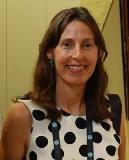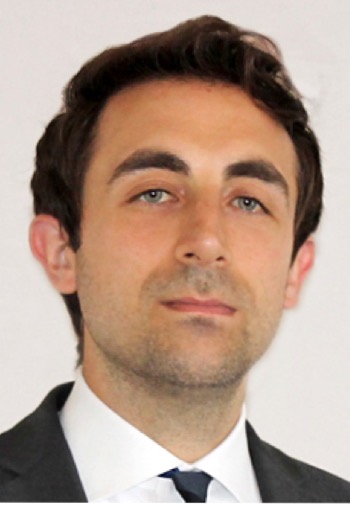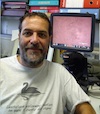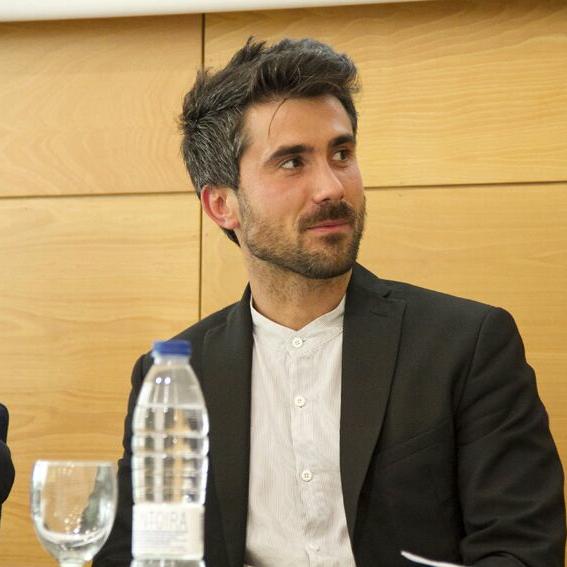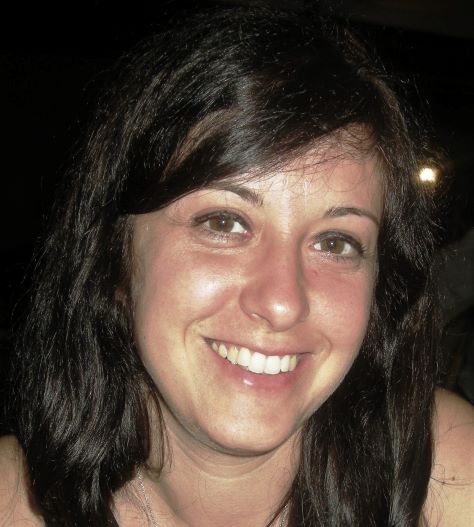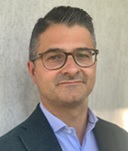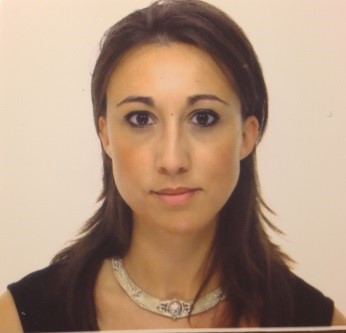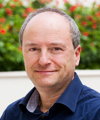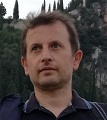Studying at the University of Verona
Here you can find information on the organisational aspects of the Programme, lecture timetables, learning activities and useful contact details for your time at the University, from enrolment to graduation.
Academic calendar
The academic calendar shows the deadlines and scheduled events that are relevant to students, teaching and technical-administrative staff of the University. Public holidays and University closures are also indicated. The academic year normally begins on 1 October each year and ends on 30 September of the following year.
Course calendar
The Academic Calendar sets out the degree programme lecture and exam timetables, as well as the relevant university closure dates..
| Period | From | To |
|---|---|---|
| I semestre | Oct 1, 2020 | Jan 29, 2021 |
| II semestre | Mar 1, 2021 | Jun 11, 2021 |
| Session | From | To |
|---|---|---|
| Sessione invernale d'esame | Feb 1, 2021 | Feb 26, 2021 |
| Sessione estiva d'esame | Jun 14, 2021 | Jul 30, 2021 |
| Sessione autunnale d'esame | Sep 1, 2021 | Sep 30, 2021 |
| Session | From | To |
|---|---|---|
| Sessione estiva di laurea | Jul 13, 2021 | Jul 13, 2021 |
| Sessione autunnale di laurea | Oct 12, 2021 | Oct 12, 2021 |
| Sessione invernale di laurea | Mar 10, 2022 | Mar 10, 2022 |
| Period | From | To |
|---|---|---|
| Festa dell'Immacolata | Dec 8, 2020 | Dec 8, 2020 |
| Vacanze Natalizie | Dec 24, 2020 | Jan 3, 2021 |
| Epifania | Jan 6, 2021 | Jan 6, 2021 |
| Vacanze Pasquali | Apr 2, 2021 | Apr 5, 2021 |
| Festa del Santo Patrono | May 21, 2021 | May 21, 2021 |
| Festa della Repubblica | Jun 2, 2021 | Jun 2, 2021 |
| Vacanze estive | Aug 9, 2021 | Aug 15, 2021 |
Exam calendar
Exam dates and rounds are managed by the relevant Science and Engineering Teaching and Student Services Unit.
To view all the exam sessions available, please use the Exam dashboard on ESSE3.
If you forgot your login details or have problems logging in, please contact the relevant IT HelpDesk, or check the login details recovery web page.
Should you have any doubts or questions, please check the Enrollment FAQs
Academic staff
 bernardo.calabrese@univr.it
bernardo.calabrese@univr.it
 vittoria.cozza@univr.it
vittoria.cozza@univr.it
Study Plan
The Study Plan includes all modules, teaching and learning activities that each student will need to undertake during their time at the University.
Please select your Study Plan based on your enrollment year.
1° Year
| Modules | Credits | TAF | SSD |
|---|
2° Year activated in the A.Y. 2021/2022
| Modules | Credits | TAF | SSD |
|---|
| Modules | Credits | TAF | SSD |
|---|
| Modules | Credits | TAF | SSD |
|---|
| Modules | Credits | TAF | SSD |
|---|
Legend | Type of training activity (TTA)
TAF (Type of Educational Activity) All courses and activities are classified into different types of educational activities, indicated by a letter.
Molecular sensors for environmental, industrial and clinical applications (2020/2021)
Teaching code
4S008284
Teacher
Coordinator
Credits
6
Language
Italian
Scientific Disciplinary Sector (SSD)
CHIM/01 - ANALYTICAL CHEMISTRY
Period
II semestre dal Mar 1, 2021 al Jun 11, 2021.
Learning outcomes
The course aims to provide the theoretical and practical basis of sensors and biosensors technology. The role and kind of receptors, the transduction systems and of the main conjugation methods will be discussed in details, pointing out strong points and limits characterizing each system. Selected industrial and environmental sensor’s applications intended for the quali-quantitative determination of analytes of industrial interest, soil, water and air contaminants will be presented as case studies.
Program
The program stars with the general introduction to the concepts of sensor and analyte.
Description of the characteristics of the receptor element:
- biological molecules: receptors, antibodies, enzymes; nucleic acids
-biomimetics: imprinted polymers, cyclodextrins, cavitands
- organic selective materials: permeable membranes, etc.
The description of the principles of signal transduction for the most common transducers:
-electrochemicals: voltammetrics, amperometers, field effect transducers
-optical: SPR, fluorescence
-piezoelectric
The transducer/receptor interface:
- surface chemistry and interface analysis techniques
Some selected sensor applications:
-environmental (PFAS, estrogens, explosives, drugs)
-clinical (glucose sensor, metabolites)
- industrial (product aging monitoring)
-wearable sensors
-intelligent packaging
Examination Methods
The exam is aimed at verifying the acquisition by the student of the skills described in the objectives (knowledge of the concepts of sensor, the types of receptors and the main types of transducers, including their working principles, hoe to prepare a transducer receptor interface, exemplificative applications).
The exam is written, open questions, 2 hours. The written exam is integrated, upon student’s request, with an oral verification.
Type D and Type F activities
Le attività formative in ambito D o F comprendono gli insegnamenti impartiti presso l'Università di Verona o periodi di stage/tirocinio professionale.
Nella scelta delle attività di tipo D, gli studenti dovranno tener presente che in sede di approvazione si terrà conto della coerenza delle loro scelte con il progetto formativo del loro piano di studio e dell'adeguatezza delle motivazioni eventualmente fornite.
| years | Modules | TAF | Teacher |
|---|---|---|---|
| 1° 2° | Python programming language | D |
Vittoria Cozza
(Coordinator)
|
Career prospects
Module/Programme news
News for students
There you will find information, resources and services useful during your time at the University (Student’s exam record, your study plan on ESSE3, Distance Learning courses, university email account, office forms, administrative procedures, etc.). You can log into MyUnivr with your GIA login details: only in this way will you be able to receive notification of all the notices from your teachers and your secretariat via email and soon also via the Univr app.
Graduation
Deadlines and administrative fulfilments
For deadlines, administrative fulfilments and notices on graduation sessions, please refer to the Graduation Sessions - Science and Engineering service.
Need to activate a thesis internship
For thesis-related internships, it is not always necessary to activate an internship through the Internship Office. For further information, please consult the dedicated document, which can be found in the 'Documents' section of the Internships and work orientation - Science e Engineering service.
Final examination regulations
List of theses and work experience proposals
| theses proposals | Research area |
|---|---|
| Valutazione dell'applicazione di nanoparticelle biogeniche per il controllo del cancro batterico del kiwi | AGRICULTURE - AGRICULTURE |
| Valutazione dell'applicazione di nanoparticelle biogeniche per il controllo del cancro batterico del kiwi | APPLICATIONS OF LIFE SCIENCES - APPLICATIONS OF LIFE SCIENCES |
| Valorizzazione di scarti agroindustriali mediante fermentazione termofila per la produzione di acidi organici come precursori chimici di polimeri | Applied biotechnology (non-medical), bioreactors, applied microbiology - Applied biotechnology (non-medical), bioreactors, applied microbiology |
| Valutazione dell'applicazione di nanoparticelle biogeniche per il controllo del cancro batterico del kiwi | Applied biotechnology (non-medical), bioreactors, applied microbiology - Applied biotechnology (non-medical), bioreactors, applied microbiology |
| Immobilizzazione di enzimi d’interesse industriale su nanoparticelle biomimetiche magnetiche | Applied Life Sciences and Non-Medical Biotechnology: Applied plant and animal sciences; food sciences; forestry; industrial, environmental and non-medical biotechnologies, nanobiotechnology, bioengineering; synthetic and chemical biology; biomimetics; bioremediation - Biomimetics |
| Immobilizzazione di enzimi d’interesse industriale su nanoparticelle biomimetiche magnetiche | Applied Life Sciences and Non-Medical Biotechnology: Applied plant and animal sciences; food sciences; forestry; industrial, environmental and non-medical biotechnologies, nanobiotechnology, bioengineering; synthetic and chemical biology; biomimetics; bioremediation - Non-medical biotechnology and genetic engineering (including transgenic organisms, recombinant proteins, biosensors, bioreactors, microbiology) |
| Immobilizzazione di enzimi d’interesse industriale su nanoparticelle biomimetiche magnetiche | Chemical engineering, technical chemistry - Chemical engineering, technical chemistry |
| Effetto delle condizioni operative applicate al processo di digestione anaerobica su produzione di biogas e stabilità del carbonio organico del digestato | Earth System Science: Physical geography, geology, geophysics, atmospheric sciences, oceanography, climatology, cryology, ecology, global environmental change, biogeochemical cycles, natural resources management - Biogeochemistry, biogeochemical cycles, environmental chemistry |
| Influenza dalla variazione stagionale del feedstock sulla produzione di biogas e sulla stabilità del carbonio organico presente nel digestato prodotto | Earth System Science: Physical geography, geology, geophysics, atmospheric sciences, oceanography, climatology, cryology, ecology, global environmental change, biogeochemical cycles, natural resources management - Biogeochemistry, biogeochemical cycles, environmental chemistry |
| Studio dei pool di sostanza organica del suolo in permafrost antartici | Earth System Science: Physical geography, geology, geophysics, atmospheric sciences, oceanography, climatology, cryology, ecology, global environmental change, biogeochemical cycles, natural resources management - Biogeochemistry, biogeochemical cycles, environmental chemistry |
| Valorizzazione di scarti agroindustriali mediante fermentazione termofila per la produzione di acidi organici come precursori chimici di polimeri | Environmental biotechnology, bioremediation, biodegradation - Environmental biotechnology, bioremediation, biodegradation |
| Bilanci di massa e di materia in digestori anaerobici alimentati con residui agricoli e zootecnici. | Products and Processes Engineering: Product design, process design and control, construction methods, civil engineering, energy processes, material engineering - Chemical engineering, technical chemistry |
| Studio della composizione chimica e della stabilità termica di poliidrossialcanoati ottenuti da diverse matrici ambientali. | Products and Processes Engineering: Product design, process design and control, construction methods, civil engineering, energy processes, material engineering - Chemical engineering, technical chemistry |
| Valorizzazione di scarti agroindustriali mediante fermentazione termofila per la produzione di acidi organici come precursori chimici di polimeri | Products and Processes Engineering: Product design, process design and control, construction methods, civil engineering, energy processes, material engineering - Chemical engineering, technical chemistry |
| Immobilizzazione di enzimi d’interesse industriale su nanoparticelle biomimetiche magnetiche | Products and Processes Engineering: Product design, process design and control, construction methods, civil engineering, energy processes, material engineering - Materials engineering (metals, ceramics, polymers, composites, etc.) |
| Valorizzazione di scarti agroindustriali mediante fermentazione termofila per la produzione di acidi organici come precursori chimici di polimeri | Products and Processes Engineering: Product design, process design and control, construction methods, civil engineering, energy processes, material engineering - Production technology, process engineering |
| Studio delle proprietà di luminescenza di lantanidi in matrici proteiche | Synthetic Chemistry and Materials: Materials synthesis, structure-properties relations, functional and advanced materials, molecular architecture, organic chemistry - Colloid chemistry |
| Multifunctional organic-inorganic hybrid nanomaterials for applications in Biotechnology and Green Chemistry | Synthetic Chemistry and Materials: Materials synthesis, structure-properties relations, functional and advanced materials, molecular architecture, organic chemistry - New materials: oxides, alloys, composite, organic-inorganic hybrid, nanoparticles |
Attendance
As stated in the Teaching Regulations for the A.Y. 2022/2023, attendance is not mandatory. However, professors may require students to attend lectures for a minimum of hours in order to be able to take the module exam, in which case the methods that will be used to check attendance will be explained at the beginning of the module.
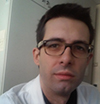
 045 802 7823
045 802 7823

